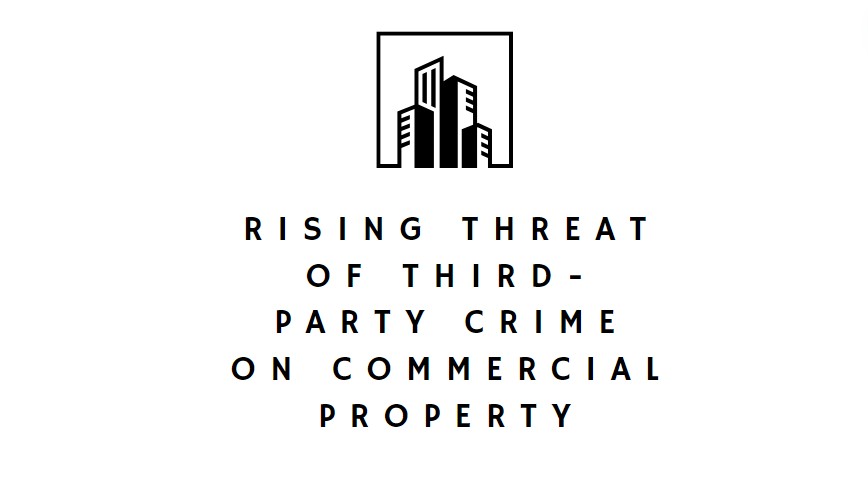Third-party crime on commercial properties is an escalating issue that property owners must address. Statistics show that crimes committed by third parties on business premises have increased 30% over the past decade. This trend necessitates proactive risk management by business owners, as explained by premises liability attorneys. Click here now at the sumnerlawgroup.
Understanding Third-Party Premises Liability
Premises liability refers to the legal responsibility of property owners to provide safe conditions for those who enter their land or buildings. This duty of care requires owners to address known hazards or dangers that may foreseeably lead to injuries.
Third-party liability concerns harm caused by criminals or other third parties that property owners could have reasonably prevented. If a customer gets mugged in a poorly lit parking garage, the business may face liability for enabling the attack to occur.
Key Factors in Third-Party Premises Cases
Several key factors determine liability in third-party crime lawsuits:
Foreseeability
- Did past incidents or location specifics make the criminal act predictable?
- Were there warning signs that made the crime foreseeable?
Security Measures
- Did the property have adequate lighting, alarms, guards, access control, surveillance, etc.?
- Were appropriate precautions taken given location risks?
Causation
- Did lack or insufficiency of security measures allow the crime to be committed?
- Would enhanced security have realistically prevented the incident?
Demonstrating deficiency in one or more areas often results in premises liability. Plaintiffs must show proximate cause between missing or subpar security and the criminal occurrence.
Statistics on Third-Party Crimes by Location
The following statistics from the Bureau of Justice Statistics highlight the most common locations for third-party crimes:
Annual Average Number of Violent Crimes by Location
| Location | Estimated Crimes |
|---|---|
| Parking lots/garages | 325,000 |
| Commercial businesses | 200,000 |
| Bars/nightclubs | 130,000 |
| Hotels/motels | 75,000 |
Parking facilities have the highest instance of assaults, robbery, and rape. Poor lighting, lack of security patrols, and limited visibility create ample crime opportunities.
Retail stores also suffer frequent third-party crimes, especially in economically disadvantaged regions. Shoplifting, vandalism, and violence against patrons and employees are leading issues.
Workplace Violence Incidents From 2017-2021
| Year | Number of Incidents |
|---|---|
| 2021 | 1,100 |
| 2020 | 1,000 |
| 2019 | 850 |
| 2018 | 800 |
| 2017 | 730 |
On average, two employees are murdered, and 86 are raped or sexually assaulted in the workplace daily. Active shooter events increased by over 50% from 2017 to 2021 as well.
These statistics signal a clear imperative for businesses to implement comprehensive programs addressing third-party crime risks.
Robust Security Protocols Mitigate Third-Party Liability
While no amount of security can prevent all crime, utilizing industry best practices dramatically reduces liability from third-party incidents.
Physical Security
- Access control with locks, alarms, and security guards
- Surveillance cameras to cover vulnerable areas
- Ensure adequate lighting outdoors and in internal spaces
- Limit hiding spots via environmental design
Cyber Security
- Encrypt sensitive customer and employee data
- Install firewalls, anti-malware software
- Develop strong password policies and authentication processes
- Regularly patch IT systems against vulnerabilities
Policies & Procedures
Document safety protocols addressing:
- Cash handling and asset protection
- Active shooter response
- Reporting of violent incidents
- Background checks during hiring
Also essential are emergency plans, workplace violence training, and engagement with local law enforcement around community safety programs.
When Third Party Incidents Occur
If a violent attack or crime still occurs despite reasonable efforts, premises liability claims become far less likely to succeed. Plaintiffs must definitively show security measures were inadequate or lacking.
Of course, some incidents arise from unforeseeable gaps or unpredictable perpetrator behaviour. While still tragic, property owners cannot safeguard against every hypothetical scenario.
If sued after a third-party incident, commercial owners should consult premises liability litigation attorneys immediately. An experienced lawyer can assess culpability risks and craft a targeted legal defence. Swift action also facilitates evidence preservation and investigation to defend against fraudulent or exploitative lawsuits.
Conclusion
Rising crime rates and violence require proactive planning by enterprises, both large and small. Failing to address foreseeable vulnerabilities can rightfully impose premises liability should client assets or safety become compromised.
Thankfully, proven security methods allow organizations to control the majority of third-party crime risks. Dedicated implementation of industry best practices makes the difference in preventing tragic loss of life or business stability. Partnership with skilled legal counsel provides an added shield against damaging legal actions when prevention fails.
Together, thoughtful precautions and prompt response strategies empower owners to foster environments where people and commerce can thrive safely.
